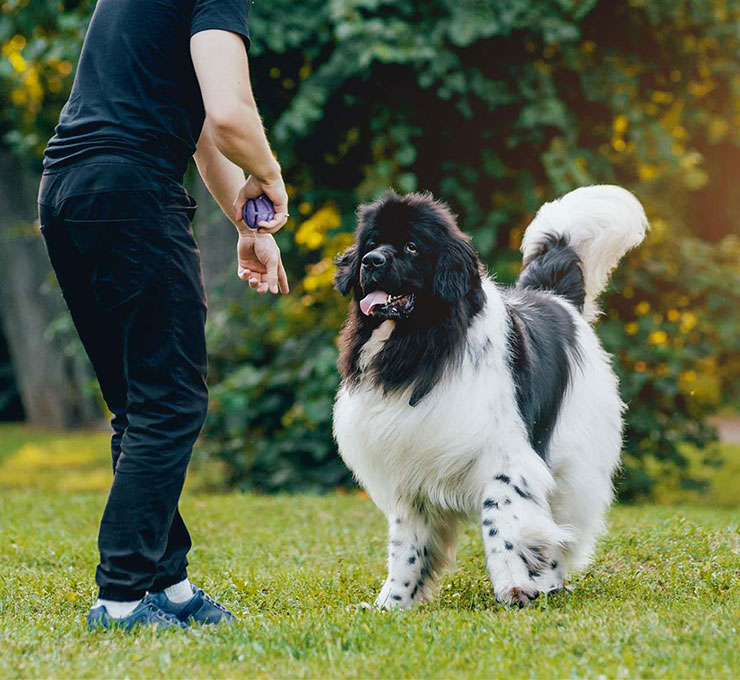Specialty Program

Specialty Program
A Dog Specialty Program typically refers to specialized training or care programs designed for specific purposes, such as advanced training, therapeutic roles, or catering to specific breeds' needs. These programs can vary widely depending on the goal, whether it’s training dogs for service work, specialized obedience, or high-level competition. Below are some of the major types of dog specialty programs:
We Solve Behavior Problems:
- Housebreaking
- Pulling on the leash
- Not coming when called
- Darting out through open doors
- Hyperactivity
- Nipping & mouthing
1. Service Dog Training
- Purpose: Service dogs are trained to assist individuals with disabilities by performing specific tasks.
-
Types of Service Dogs:
- Guide Dogs for the visually impaired.
- Hearing Dogs for the deaf or hard of hearing.
- Mobility Assistance Dogs to aid with physical tasks.
- Medical Alert Dogs that can detect conditions like seizures or low blood sugar.
- Psychiatric Service Dogs for individuals with mental health conditions such as PTSD.
- Training Focus: These dogs undergo extensive training (often 1–2 years) to master specific tasks like opening doors, retrieving objects, or guiding their owners safely.
2. Therapy Dog Programs
- Purpose: Therapy dogs provide emotional support and comfort to people in hospitals, nursing homes, schools, or disaster areas.
- Training Focus: Therapy dogs are trained for calm and gentle behavior, ensuring they can interact well with diverse groups of people, including children, the elderly, and individuals with disabilities. Unlike service dogs, therapy dogs do not perform specific tasks but rather provide companionship and emotional care.
3. Detection Dogs
- Purpose: Detection dogs are specially trained to sniff out specific scents such as explosives, drugs, or even illnesses like cancer.
-
Types of Detection Dogs:
- Police Dogs (K9 Units): Trained to detect drugs, explosives, or find missing people.
- Search and Rescue Dogs: Specially trained to find people in natural disasters or wilderness areas.
- Medical Detection Dogs: Can detect diseases such as cancer, or sense when a person is about to have a medical episode like a seizure.
- Training Focus: The focus is on developing the dog's scent detection abilities and improving their alerting behavior.
4. Agility Training Programs
- Purpose: Agility training involves teaching dogs to navigate obstacle courses at high speeds while following the handler's commands.
- Training Focus: Dogs learn to run through tunnels, weave poles, jump over hurdles, and walk across seesaws. Agility training requires obedience, focus, and athleticism.
- Popular Breeds: Border Collies, Australian Shepherds, Shetland Sheepdogs, and other high-energy breeds often excel in agility training.
- Competitions: Agility competitions are popular worldwide, with organizations such as the AKC (American Kennel Club) hosting events.
5. Canine Good Citizen (CGC) Program
- Purpose: The CGC program, administered by the American Kennel Club (AKC), is designed to reward dogs who have good manners at home and in the community.
- Training Focus: Dogs are tested on their ability to sit calmly, respond to commands, behave well with strangers and other dogs, and walk on a loose leash.
- Certification: Passing the CGC test can serve as a stepping stone for other advanced training programs, such as therapy dog certification or competitive obedience.
6. Protection Dog Training
- Purpose: These programs train dogs to protect their handlers or property. Protection dogs are often used in law enforcement, personal protection, and security.
- Training Focus: This involves teaching dogs controlled aggression, biting techniques, and how to respond to specific threats while remaining loyal and obedient to their handlers.
- Popular Breeds: German Shepherds, Belgian Malinois, Doberman Pinschers, and Rottweilers are commonly trained for protection work.
7. Obedience Training Programs
- Purpose: Focuses on teaching dogs advanced commands and behavior to excel in obedience competitions or improve daily manners.
- Training Focus: Beyond basic commands (sit, stay, come), advanced obedience training teaches dogs to perform complex tasks like heeling, retrieving, and off-leash work.
- Competitive Obedience: Dogs can participate in obedience trials where they are judged on precision and performance.
8. Breed-Specific Programs
- Purpose: Some programs focus on the specific needs and traits of certain breeds.
-
Examples:
- Herding Programs: For dogs like Border Collies and Australian Shepherds, trained to herd livestock.
- Hunting/Field Training: Programs for retrievers, pointers, and hounds that focus on hunting, tracking, and retrieving game.
- Sled Dog Training: Breeds like Huskies are trained for sledding, requiring endurance, obedience, and teamwork.
9. Emotional Support Animal (ESA) Programs
- Purpose: ESAs provide comfort to people suffering from mental health issues such as anxiety, depression, or PTSD. They don’t perform specific tasks like service dogs but offer companionship that helps alleviate symptoms.
- Training Focus: ESAs don’t require formal training like service dogs, but they should have good manners and be well-behaved in public settings.
10. Canine Sports
-
Purpose: There are various dog sports that require specialized training:
- Flyball: A relay race where dogs jump over hurdles and retrieve a ball.
- Dock Diving: Dogs are trained to leap into a body of water to achieve maximum distance or height.
- Rally Obedience: A sport combining obedience and agility, where dogs and their handlers complete a course of commands and tasks
Kathy D. Grayson
client

_"I’ve been using LMKK9S for a few months now, and I’m beyond impressed with their level of care and attention to detail.
Richard M. Slack
client

Thank you, LMKK9S, for being so reliable and treating Bella like one of your own!"_
Edward K. Greenlaw
client

_"I can’t believe the transformation I’ve seen in my dog, Rocky, after working with LMKSK9S!
Susan R. Moxley
client

The trainers are incredibly patient and knowledgeable, using positive reinforcement techniques that really work.